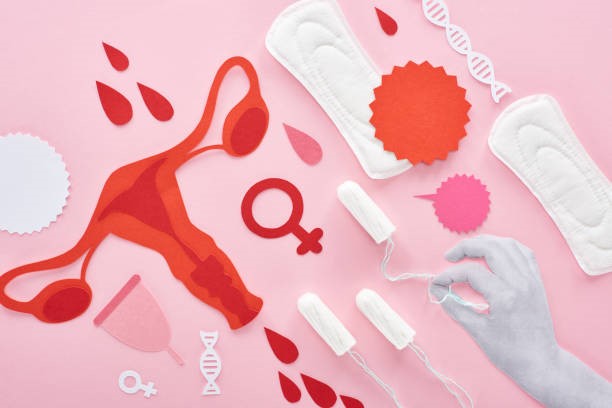Women’s Health
Navigating the Menstrual Cycle
The menstrual cycle, which is a normal and vital bodily activity, is the foundation of a woman’s reproductive health. Even though it could happen every so often, knowing the subtleties of this cycle might enable women to actively manage their reproductive health. The many stages of the menstrual cycle will be covered in detail, along with typical questions and helpful advice for preserving the best possible menstrual health. Women may make more educated decisions and handle their reproductive journey with knowledge and confidence if they have a greater awareness of this normal biological process.
The Phases of the Menstrual Cycle
1. Menstruation (Days 1-5)
The onset of menstruation, which signals the commencement of the menstrual cycle, is a pivotal event in a woman’s reproductive journey. During this initial phase, the body undergoes a natural process in which the uterine lining sheds, leading to vaginal bleeding. It’s crucial to understand that the intensity and duration of menstrual flow can vary widely from person to person. Typically, this phase lasts anywhere from three to seven days for most women. Recognizing and appreciating this natural variability empowers individuals to approach their menstrual health journey with a sense of understanding and self-assuredness. By acknowledging the uniqueness of each person’s experience, individuals can navigate their menstrual cycles with greater awareness, allowing them to make informed decisions about their reproductive well-being and overall health. This understanding fosters a positive and empowered approach to managing one’s menstrual health.
2. Follicular Phase (Days 1-13)
The follicular phase starts when the menstrual cycle does. The pituitary gland, located deep inside the brain, acts as a master regulator, sending vital messages to different sections of the body. Follicle-stimulating hormone (FSH), a crucial hormone, is released during this time. When the ovaries get this hormone, they become active and begin producing immature eggs inside of follicles. One of these follicles will usually develop and release an egg, initiating the next part of the menstrual cycle. This complex interaction between hormones and biological mechanisms highlights the complexities that underpin a woman’s reproductive health and offers deep insight into the amazing orchestration occurring within the female reproductive system.

3. Ovulation (Day 14)
Day 14 is usually when ovulation, a crucial menstrual cycle event, takes place, signifying the halfway point of this complex reproductive process. A spike in luteinizing hormone (LH) triggers this event by acting as a trigger for the mature follicle to deliver its much-anticipated cargo – an egg. This freshly released egg travels, passing via the fallopian tube and perhaps coming into contact with sperm. The menstrual cycle’s peak fertility occurs during ovulation, which is a critical window of time for possible pregnancy. Comprehending this opportune occurrence is crucial for those who are actively attempting to maximize their chances of becoming pregnant, since it offers vital information regarding the most fertile phase of the menstrual cycle.
4. Luteal Phase (Days 15-28)
Following ovulation, the rupturing follicle changes, becoming the corpus luteum, a specialized tissue. This active organism secretes the hormone progesterone, which is essential for lining the uterus and perhaps facilitating the implantation of a fertilized egg. This stage is essential for setting up the best conditions for an early pregnancy. In the case that conception is unsuccessful, the corpus luteum gradually disintegrates, which lowers progesterone levels. A new menstrual cycle begins with the commencement of menstruation, which is caused by this hormonal change. Gaining an understanding of this complexly arranged series of events might help you better understand the basic mechanisms behind fertility and reproductive health.
In my experience, discovering the intricacies of my own menstrual cycle has been like gaining a personalized roadmap to understanding my body on a deeper level. It’s a journey that empowers me to confidently navigate my reproductive health. It’s crucial to keep in mind that just as every woman is unique, so too is her cycle. If ever you have specific concerns, seeking guidance from a healthcare professional is a wise choice. Your well-being is of utmost importance, and familiarizing yourself with your cycle is a significant stride towards taking care of it!


